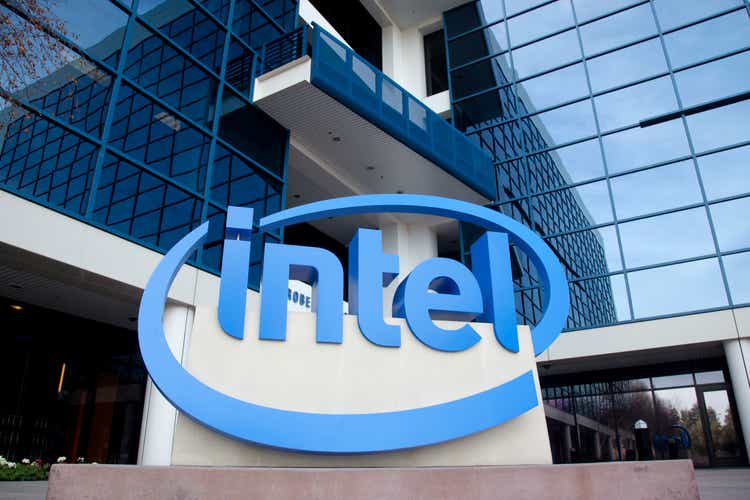
Jason Doiy
Intel (NASDAQ:INTC) passed efforts to stop the sale of its chips worth hundreds of millions of dollars to Huawei Technologies, Reuters reported, citing people familiar with the matter.
That gave the Santa Clara, California-based company more time to sell the chips to Huawei, which risks US sanctions The Biden administration has been under pressure to revoke a license, issued in the Trump era, that allows Intel to supply advanced central processors to the Chinese company for use in laptops, it said in relationship added.
The move came from Intel’s competitor Advanced Micro Devices (AMD), which argued that it was unfair that it had not obtained a license to sell similar chips to Huawei, and from China’s critics, who plan to halt all sales to the company Chinese, according to the report.
Access to chips has allowed Huawei to maintain a small but growing share of the global laptop market, while AMD has been deprived of selling hundreds of millions of dollars’ worth of chips to the Chinese tech giant, the report noted.
“Most of the CPUs used in Huawei laptops still come from Intel, so any further limitation would make Huawei’s laptop offering quite challenging,” said Emma Xu, an analyst at research firm Canalys.
In late 2020, the Commerce Department granted some of Huawei’s U.S. suppliers, including Intel, special approval to sell certain products to telecommunications equipment makers.
In early 2021, after President Joe Biden took office, AMD requested a license to sell similar chips, but the company received no response to its request, according to the report.
The impact on sales of CPU chips to Huawei was seen as the share of Huawei laptop sales made up of AMD chips fell from 47.1% in 2020 to 9.3% in the first half of 2023, an internal presentation showed of AMD with data provided by NPD and GfK, the report added.
Meanwhile, Intel’s share of sales of Huawei laptops containing its chips increased from 52.9% to 90.7%, over the same period.
Intel’s license is expected to expire this year and will likely not be renewed, the report adds.
Huawei, which also makes smartphones, was once in a race with Apple (AAPL) and Samsung (OTCPK:SSNLF) to become the world’s largest phone maker until U.S. restrictions starting in 2019 started to slow it down. its access to the chip-making tools needed to make its most advanced models.